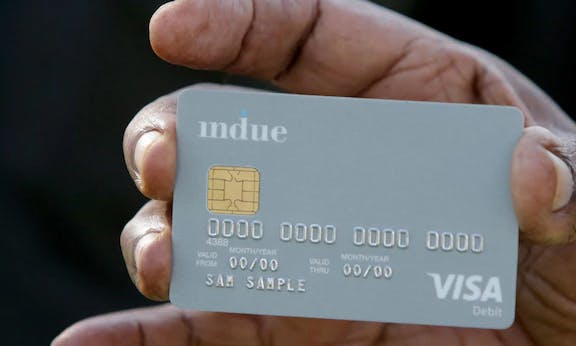‘Cashless welfare’ a punitive fraud

In mid-February, the government announced that the trial of so-called cashless welfare cards at Ceduna, South Australia, and east Kimberley, Western Australia, was to continue for another year.
A third trial area may be added. This is the scheme that Malcolm Turnbull declared last September to be “an exercise in practical love, in compassion”. Nothing could be further from the truth.
For a start, it’s racist. Most of those forced to have the government determine how they will spend 80 percent of their welfare payment are Aboriginal. White pastoralists once gave Aboriginal people rations of food rather than wages in return for their labour. Once again the message is that Aboriginal people can’t be trusted with money.
Even just a few months into the trial, in January 2017, many Aboriginal people were already saying they felt disempowered by having their spending controlled in this way. Jody Miller, a Nauo man in the Ceduna trial area, outlined the sense of shame when paying for items with the card, which is a distinctive grey.
“Everybody that I encounter that sees this card looks you up and down, and their eyes say, ‘You can’t get a job’”, he told the Guardian. “But where are the jobs for Aboriginal people?”
When there just aren’t enough jobs for the number of unemployed people, how can it be anything but totally punitive? It is an exercise in humiliation and control for everyone on it.
One in seven transactions are declined, which makes using the card humiliating – as does the required use of separate tills at pubs and roadhouses that serve alcohol, identifying card users.
It’s impossible to use the card to pay for bus fares, school lunches or goods bought from other members of the community. It’s impossible to send gifts of money when you have access to only 20 percent of your welfare payment as cash.
This is not an accidental outcome, but a deliberate one. The Labor government’s 2012 evaluation of the predecessor scheme, the BasicsCard introduced in the Northern Territory, found that more than two-thirds of people reported feelings of embarrassment. Far from being a means to “break welfare dependency”, the review found no impact on whether people entered the workforce.
The same was in the report on the current trial, released by human services minister Alan Tudge in August 2017, and reported selectively by a compliant media. Twenty-three percent said it had made their life better. Less publicised was that 42 per cent said it had made their lives worse.